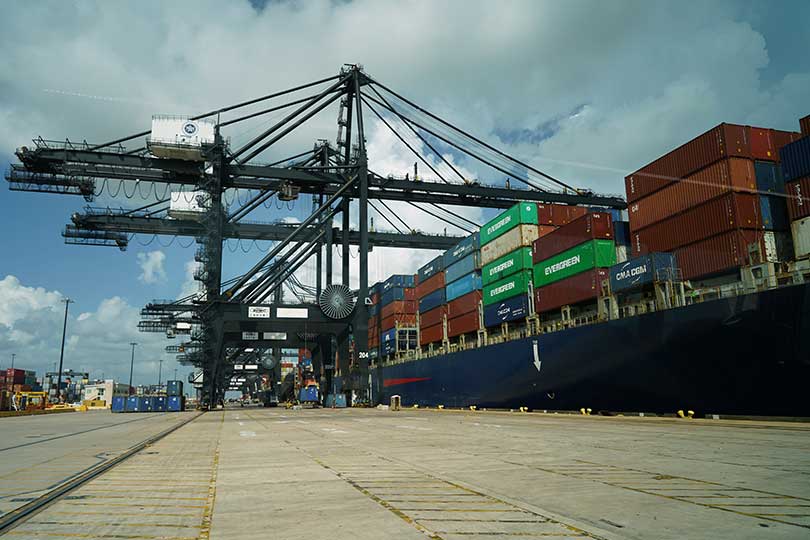By Julie Tomascik
Editor
President Joe Biden signed the Ocean Shipping Reform Act in mid-June. The bill was touted as the first major update to federal regulations for the global shipping industry in over 20 years.
The bill had support from many agricultural and forestry product groups, including Texas Farm Bureau and American Farm Bureau Federation (AFBF), since its introduction.
“AFBF appreciates the bipartisan work from Congress in getting the Ocean Shipping Reform Act passed and the quick action by President Biden to sign it into law,” AFBF President Zippy Duvall said. “Addressing congestion at our ports and creating greater accountability for shipping companies is a positive step toward ensuring America’s farmers and ranchers can continue feeding families at home and around the globe.”
The bill gives the Federal Maritime Commission, the U.S. agency responsible for overseeing ocean shipping, greater investigative authority to regulate ocean carrier practices.
The legislation would outlaw ocean carriers leaving U.S. ports with empty containers and addresses other longstanding supply chain and port disruption issues.
The robust majority vote in both the House and Senate sends a message—shipping reform is desperately needed for farmers, ranchers and other U.S. businesses.
The White House said the law will “make progress reducing costs for families and ensuring fair treatment for American businesses, including farmers and ranchers.”
Although the U.S. is coming off a record year of agricultural exports, AFBF noted that number could be higher because agriculture lost billions in ag exports due to shipping issues.
“Record-high shipping costs and shortages of containers have created bottlenecks at our ports and worsened supply chain issues at a time of growing demand domestically and overseas. Some estimates suggest we’ve lost out on more than $25 billion in agricultural exports over the past six months because of ocean shipping constraints. That’s unacceptable,” Duvall said. “Limited trade has also made it more difficult to import supplies like fertilizer, which increases costs to farmers and ultimately hurts all families through higher grocery bills.”

